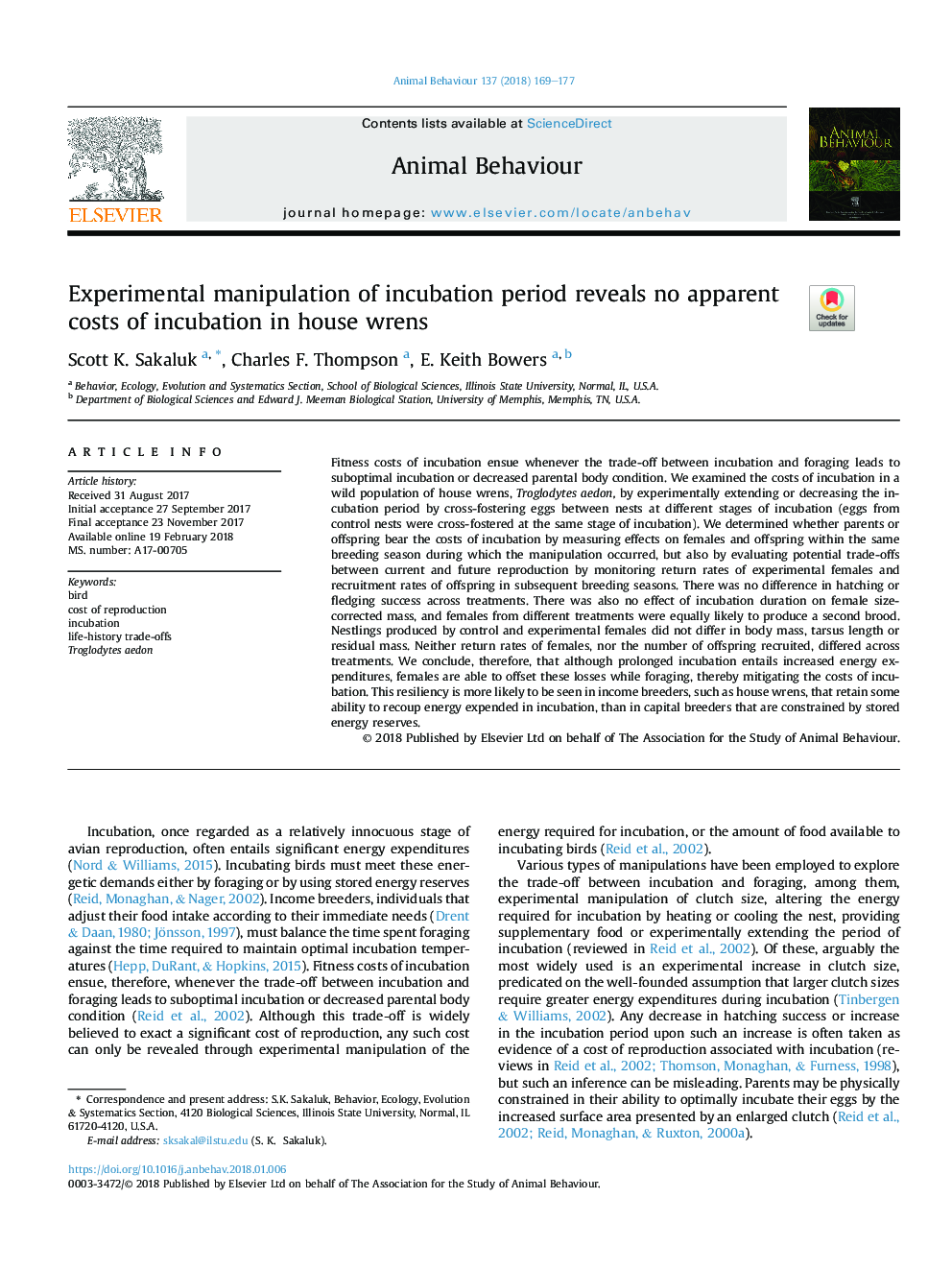| کد مقاله | کد نشریه | سال انتشار | مقاله انگلیسی | نسخه تمام متن |
|---|---|---|---|---|
| 8488644 | 1552191 | 2018 | 9 صفحه PDF | دانلود رایگان |
عنوان انگلیسی مقاله ISI
Experimental manipulation of incubation period reveals no apparent costs of incubation in house wrens
ترجمه فارسی عنوان
دستکاری تجربی از دوره انکوباسیون هیچ هزینه آشکاری از انکوباسیون در خانه را نشان نمی دهد
دانلود مقاله + سفارش ترجمه
دانلود مقاله ISI انگلیسی
رایگان برای ایرانیان
کلمات کلیدی
پرنده، هزینه تولید مثل، انکوباسیون، تجارت تاریخی زندگی، ترولودیتس آدون،
موضوعات مرتبط
علوم زیستی و بیوفناوری
علوم کشاورزی و بیولوژیک
علوم دامی و جانورشناسی
چکیده انگلیسی
Fitness costs of incubation ensue whenever the trade-off between incubation and foraging leads to suboptimal incubation or decreased parental body condition. We examined the costs of incubation in a wild population of house wrens, Troglodytes aedon, by experimentally extending or decreasing the incubation period by cross-fostering eggs between nests at different stages of incubation (eggs from control nests were cross-fostered at the same stage of incubation). We determined whether parents or offspring bear the costs of incubation by measuring effects on females and offspring within the same breeding season during which the manipulation occurred, but also by evaluating potential trade-offs between current and future reproduction by monitoring return rates of experimental females and recruitment rates of offspring in subsequent breeding seasons. There was no difference in hatching or fledging success across treatments. There was also no effect of incubation duration on female size-corrected mass, and females from different treatments were equally likely to produce a second brood. Nestlings produced by control and experimental females did not differ in body mass, tarsus length or residual mass. Neither return rates of females, nor the number of offspring recruited, differed across treatments. We conclude, therefore, that although prolonged incubation entails increased energy expenditures, females are able to offset these losses while foraging, thereby mitigating the costs of incubation. This resiliency is more likely to be seen in income breeders, such as house wrens, that retain some ability to recoup energy expended in incubation, than in capital breeders that are constrained by stored energy reserves.
ناشر
Database: Elsevier - ScienceDirect (ساینس دایرکت)
Journal: Animal Behaviour - Volume 137, March 2018, Pages 169-177
Journal: Animal Behaviour - Volume 137, March 2018, Pages 169-177
نویسندگان
Scott K. Sakaluk, Charles F. Thompson, E. Keith Bowers,
